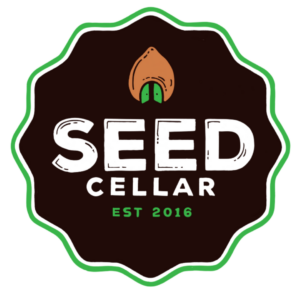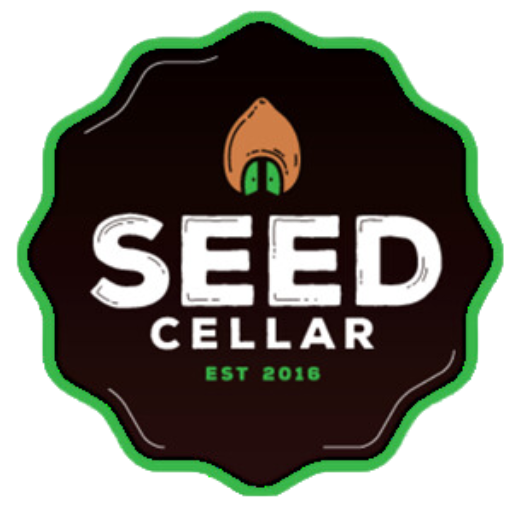Common Cannabis Questions
Welcome to Common Cannabis Questions
Common Cannabis Questions is a blog post for all those questions that we commonly see throughout the community. Accordingly, questions will range from light cycle recommendations, to state to state cannabis legalities and more!
What Are The Legalities of Cannabis Seeds?
Cannabis seeds are federally legal as they contain no medicinal properties in their seed form. At this time, we consider them “collectable novelties” at our store and sell them under that notion. And being that seeds are legal, everyone in any state can legally and safely order seeds from us and have them shipped or picked up at our store. We also offer the option for our customers to shop in-store on our tablets or with a real person!
Common Shop Questions:
Can People Come Inside To Shop?
Yes! We have a small lobby that is stocked full of different inventory and tablets to shop beans on. At the present time, seeds are kept in an employee only area to ensure storage safety.
What Forms Of Payment Can Be Used?
We accept multiple forms of payment based on how the order is placed. For in-store orders, we accept cash or credit/debit card. Our card machine charges an additional 3.99 % fee per transaction. Online orders can be paid for with credit/debit card or mailed in payment such as; Money Order, Cash, or Personal Check.
Can Orders Be Placed Ahead Of A Visit?
We allow orders to be placed and held for up to two weeks for pick up in our shop. Pick up orders can be placed online and prepaid as well.
Common Inventory Questions:
What Can Be Found At The Seed Cellar?
In-store we offer a wide variety of products from seeds to official Seed Cellar apparel. Some products are unable to be listed on our website due to size and shipping interferences, if you’re interested in purchasing in-store only product, please email or call us during business hours to receive a list of inventory available.
Categories of Inventory Found In-Store:
- Cannabis Seed
- Feminized Autoflowering
- Feminized Photoperiod
- Regular Photoperiod
- Regular Autoflowering
- Grow Equipment
- Harvest Equipment
- Mycology Supplies
- Apparel
- Handcrafted Items
- Books
What Is the Difference Between Auto/Fem/Reg Seeds?
Feminized seeds are our most popular product as this takes the guess work out of your seed. These seeds are perfect for those with a small area or indoor room. Both Photoperiod and Autoflowering can be feminized.
Regular seeds require needing sexed when grown. Generally, many growers want to stay away from male plants are they are used to pollinate female plants and create genetics. Altogether, they don’t have many uses for the average gardener. Pulling these plants is recommended if you have no desire to breed genetics for future use.
Autoflowering seeds create a plant that does not require a light cycle change during their life. These plants automatically flower around 3-4 weeks and are traditionally smaller in size. Surprisingly, autoflowering seeds can be feminized or regular.
Photoperiod seeds are the beginning of a traditional cannabis plant that everyone knows and loves. These plants will require a light cycle change throughout their life; mirroring the solstice in the late summer months. Many growers prefer these plants for their size and ability to be grown outdoors.
We’ve touched on the differences on Auto/Fem/Reg Seeds before on a separate blog post that you can check out here.
What Can Be Found Online?
We offer cannabis seeds and apparel on our website! You can find thousands of varieties of cannabis seeds from many different breeders listed. Filters are offered to the left-hand side of the screen to better narrow down any search, as the lists can be overwhelming!
Common Filters Used:
- High Potential
- Indica
- Sativa
- Large Yield
- Purple
- Frosty
- 7-8 Weeks
- 8-9 Weeks
- Feminized Photoperiod
- Feminized Autoflowering
Overall, we recommend relaxing and scrolling the website during any free time to browse our inventory. But if you’re needing seed now, we understand and highly recommend the use of the filter tags! At this time, all products found on the website, should currently be in stock.
Does The Seed Cellar Sell Clones?
No, we are unable to properly keep and maintain clones at this time.
When Will Seedlings Be Available?
While we don’t stock clones, every spring and summer we supply the community an opportunity to obtain baby cannabis plants known as seedlings. We begin this process in early February to have small plants available by the end of March. Prices fluctuate accordingly every year they’re offered. Strains offered will be selected from the Life Is An Adventure collection with limited breeder strains available throughout the season.
What Kind Of Mycology Supplies Do You Have?
Yes! We offer a variety of different mycology supplies and offer a monthly class providing assistance to individuals. Majority of the supplies we offer is larger and we are unable to ship these products at this time. Liquid cultivation supplies can be shipped to all states except: Georgia, Idaho, and California.
Some Products Include:
- Grain
- 1lbs
- 2.5lbs
- Substrate
- CVG Mix (Coco Coir, Vermiculite, and Gypsum)
- Master’s Mix
- Coco Coir
- Kits
- Optional Accessories
Class fees range for this course and we recommend signing up in advance. Current course dates are posted on the Seed Cellar Eventbrite homepage and the Seed Cellar website homepage.
Common Shipping Questions:
How Does The Seed Cellar Ship Products?
We ship our products through the United States Postal Service (USPS) in a discrete bubble mailer. Our labels will use the anagram “TSC” to indicate The Seed Cellar is shipping to your home or establishment. Overall this method ensures a safe journey for your package, and adds an additional layer of protection.
How Long Will My Package Take To Ship?
We typically estimate a 3-5 business day journey for orders placed with us. The closer you’re ordering from, usually the shorter the shipping time for your package. Occasionally, holidays will effect these time estimates as the USPS begins intercepting and delivering an influx of packages.
Will I Receive A Tracking Number?
Yes! Everyone that provides an email address to us will receive a tracking number from the USPS online service in one of two ways:
- If you place your order online through our website, you will receive a tracking number from us through your email linked to your account.
- If you place your order over the phone, you will receive a tracking number from Roger Maufort through Stamps.com – these labels are manually created through the USPS label generating website.
Common Grow Questions:
What Pest Is Invading My Plant?
Cannabis plants have a wide variety of pests that can affect your plants every year. With so many pests out there, we recommend closely looking at the damage to your plants and looking at our Cannabis Plant Pests and What to Know blog post. Although we don’t have every plant pest listed, we listed the most commonly present in a majority of the countries areas.
If you feel none of these pests are invading your garden, we recommend reaching out to the cannabis growing community through Facebook Groups, Reddit Forums, Discord Forums, etc.! Nothing is more rewarding than when the community comes together to help one another out.
What Light Cycle Does My Plant Require?
When growing outdoors, you won’t have to worry about changing your light cycle as mother nature does it for us! But when growing indoors, your plant may or may not require a light cycle change to properly flower.
- Autoflowering plants will not require a light cycle change, as they prefer a 18/6 cycle their whole life. It’s not recommended to leave 24 hours of light for these plants, as all living organisms require rest to grow properly.
- Photoperiod plants will require a light cycle change from 18/6 during the vegetation period to 12/12 during the flowering period. Outside this happens naturally at the end of the summer months. Indoors plants can stay in the vegetative state until they complete the standards to be flipped into flower.
What Is Good To Grow Outdoors?
This question always depends on where you live, as the northern states frost in the fall. Regardless, a good solid choice is a 7-9week flowering period.
All Time Popular Strains:
If you need something else, we offer a variety of flowering times for different needs and different speeds. Check out our website filter tags or give us a call during business hours!
Can Autoflowers Be Grown Outside?
Yes! While it’s controversial amongst some, they can definitely be grown outdoors. Depending the care they receive and the amount of sunlight available, an autoflowering plant can flourish outdoors. We recommend a large, breathable pot to house your plant or place them into the ground if pots are unavailable. If they are given enough space, they can grow accordingly to their estimated yield size.
Can Autoflowering Plants Be Cloned?
No, autoflowering plants may not be cloned due to the genetics. At this time only photoperiod plants can be cloned.
If you have more questions…
Please reach out in one of the following ways:
- Email info@seedcellar.com
- Call (517) 879-2801
- Send a submission request through our website www.seedcellar.com






